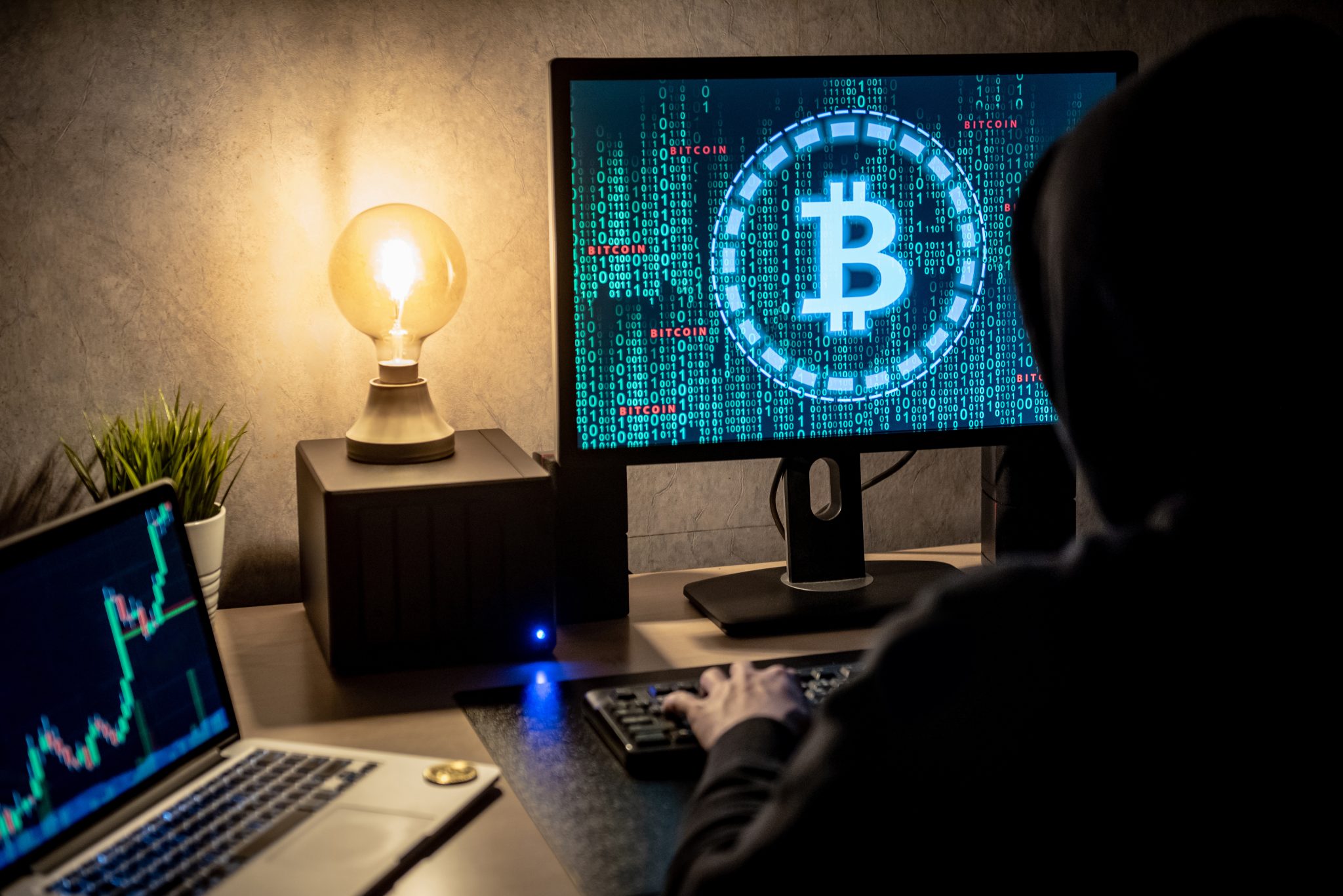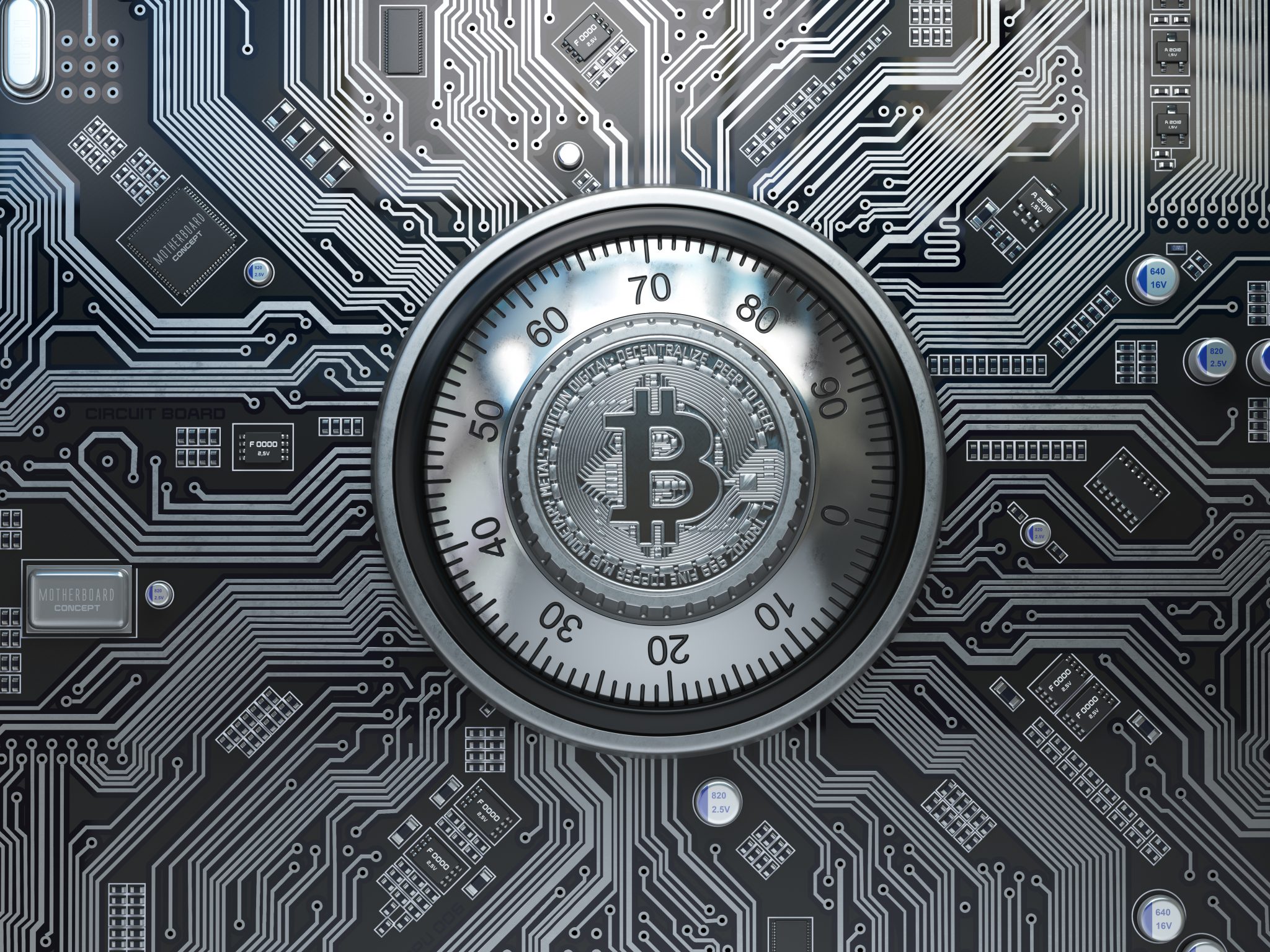
Hacker man using laptop and computer with Bitcoin green binary graphic and cryptocurrency candlestick graph price on monitor screen. Cyber crime digital currency laundering concept
Cryptocurrency trading may promote a significant impact on today’s market prices. The volatility of digital currencies present traders with short-term yet possible productive interest. It’s this trait that makes digital currency trading exciting in the hearts and minds of exchangers.
But, don’t let that excitement get into your head as you should still follow certain security measures to ensure hackers don’t steal your valuable data. Hence, below are five cryptocurrency security tips from the experts you should know.

What Is Cryptocurrency Exchange?
Before knowing the expert tips for cryptocurrency exchange, it’s important to learn about this service first.
A cryptocurrency exchange or digital currency exchange (DCE) is a company or service that buys and sells various digital currencies online. Many businesses in this sector are available in different countries, including the United States. Some cryptocurrency exchange firms might also be in international regions to help global users. This availability promotes numerous benefits and risks to DCE traders. Therefore, you should always practice due diligence in protecting your data, lest it falls into the wrong hands.
So, without further ado, here are the expert tips for additional cryptocurrency security:

- Beware Of Phishing Scams
In today’s connected world, data might mean everything to an online user. Keeping that data safe allows you to progress financially, especially in cryptocurrency exchange. Note that cryptocurrency is changing the lives of several people globally. Crypto Head even describes it as a ‘phenomenon on a worldwide scale.’ But, several other folks want to get in on this action using dastardly deeds. At Crypto Head we aim to provide a platform that allows both new and experienced users to learn about the industry and make informed decisions.
One way cyber attackers can get into your cryptocurrency data is through phishing scams. This cybercrime allows individuals to pose as legitimate institutions or entities to capture various sensitive data, including your digital currency details. Thus, always research any company or institution before making deals with them.
For example, one entity emails you to collaborate on a cryptocurrency project. But, you need to click on the attached link to get started. Before you click on the said URL, you need to practice due diligence by researching about the sender. Check the email address, and see if it comes from the business or organization that the sender claims to be legit. If the entity exists, ensure that the email comes from the business or organization. As a rule of thumb, legitimate businesses tend to have professional-looking email addresses with formats like ‘representative@businessname.com.’
However, consider deleting the message and marking it as spam if the sender’s email address comes from a free email service like Gmail or Yahoo! Mail.
You may also look for the Better Business Bureau (BBB) profile of the cryptocurrency exchange service before doing business with them. Many illicit businesses don’t have this profile, so having one may provide you with a sense of relief when doing digital currency trades.
- Use A Dedicated Computer And Internet Connection For Trading
Have you experienced the following scenario? Perhaps, you’re walking outside while running errands when your phone chimes with a new notification. This alert tells you that it’s now the right time to sell your cryptocurrency shares. However, your mobile Internet connection isn’t giving you the speed and stability to exchange efficiently. Thus, you decide to log into a nearby public Wi-Fi to trade. You’re now happy that you’ve gained profit from the recent trade. However, you’re completely unaware that you’ve already exposed your account details by logging into the public network.
Keep in mind that many cybersecurity threats exist in public Wi-Fi networks. CoffeeMiner is one such example as it taps into encryption currency to inject mining codes into public connections. This cybersecurity threat taps into digital currency profiles, leading to data leaks. Therefore, stay away from public Wi-Fi access points, regardless of the need to trade at the most opportune moment. If you need to exchange digital currencies in public locations, consider bringing a pocket Wi-Fi access device.
Otherwise, do all your exchanges at home and with a dedicated computer. Have that computer connect to a private Internet connection to ensure your valuable and sensitive data is safe from the Internet’s prying eyes.
- Check Account Activity Frequently
Another way to protect yourself against fraud and large-scale security breaches is to always check for unauthorized activity and transactions on a cryptocurrency exchange network. Always ensure that your cryptocurrency exchange service has adequate security measures to prevent unauthorized entries into your account. Any activity other than yours should be a red flag that alarms you to tighten your digital currency account’s security measures.
Note that various methods exist to keep track of your activity and check for any unauthorized changes or transactions. One example is through logging into your online account and performing a check. Take a look at any unauthorized accesses and transactions made. If you see any suspicious login attempts and other transactions, notify the cryptocurrency exchange service immediately.
- Buy A Cryptocurrency Hardware Wallet
A hardware wallet is a physical device that stores data, particularly cryptocurrency exchange information, to help protect sensitive data from falling into the wrong hands. As its name implies, it’s like a wallet for your tangible cash. But, instead of physical bills and coins, it keeps your digital currency data.
- Use Two-Factor Authentication
Before, if you know the username and password to a particular account, you can get into the said account without going through difficult challenges. Thus, it can be quite easy to hack into accounts before. However, if you want to make your cryptocurrency account more secure than before, consider enabling two-factor authentication. This method adds another layer of security for your account.
Hence, if hackers try to access your digital currency exchange data, they need to go through the second layer of protection before they can view your information. This additional layer might range from inputting a one-time password (OTP) sent to your phone or by answering a security question.
Final Words
Like the tangible cash in your wallet, it should be in your best interest to keep your digital currencies from harm’s way. Protect your cryptocurrencies by using security protocols, like staying away from phishing scams, using a dedicated computer for trading, and checking frequent account activities. You can visit Swyftx learn – crypto scams to learn how to spot cryptocurrency scams. Also, use exchange services smartly to avoid increasing the risks of your cryptocurrency account getting breached.